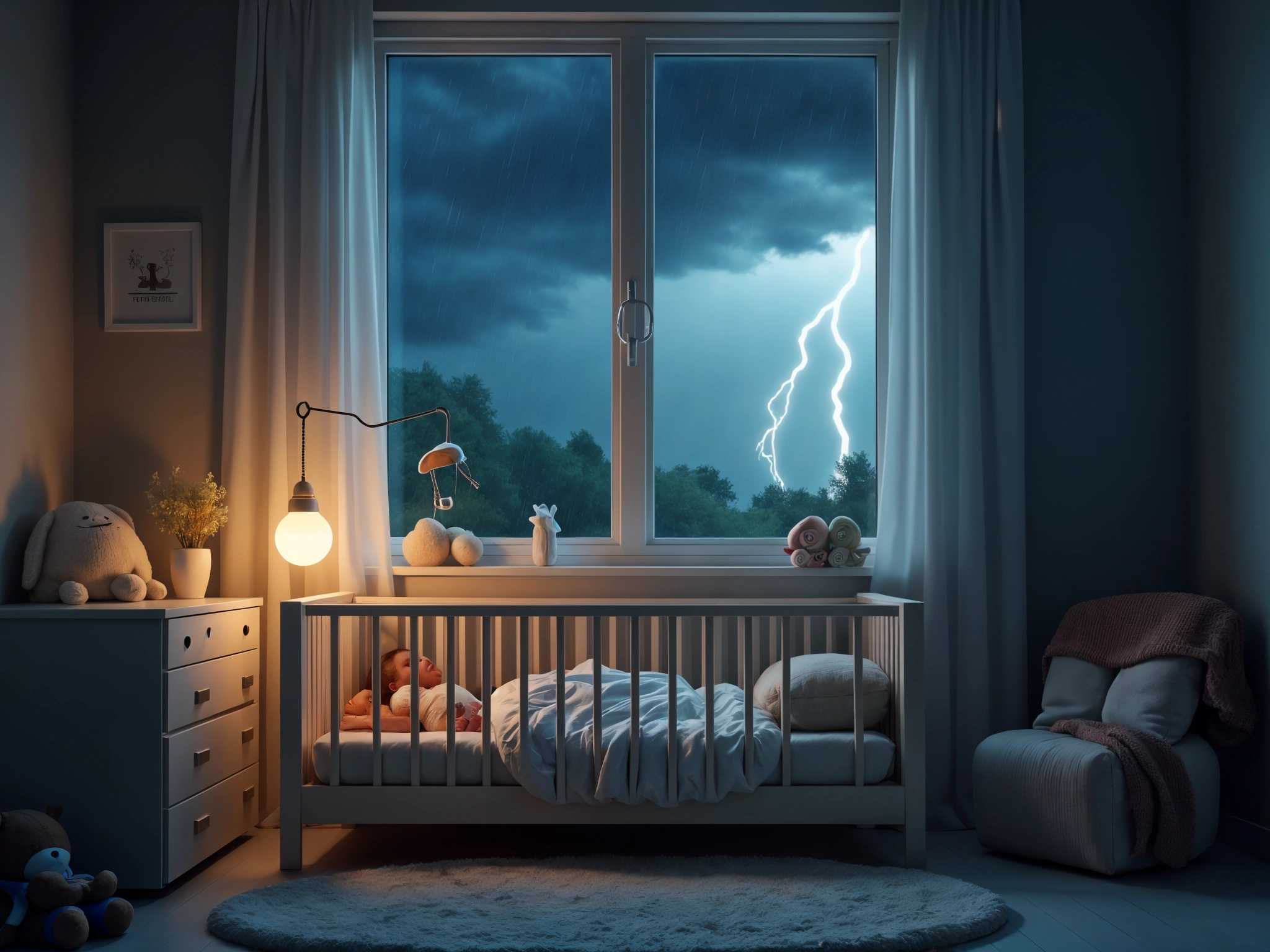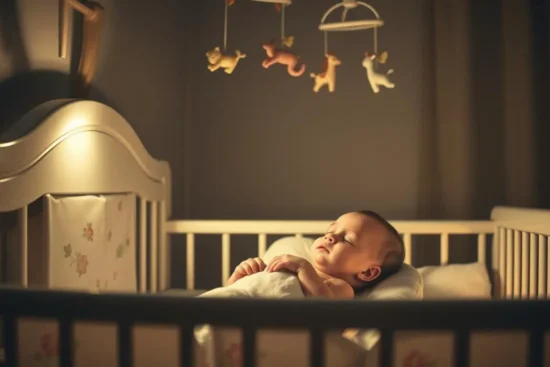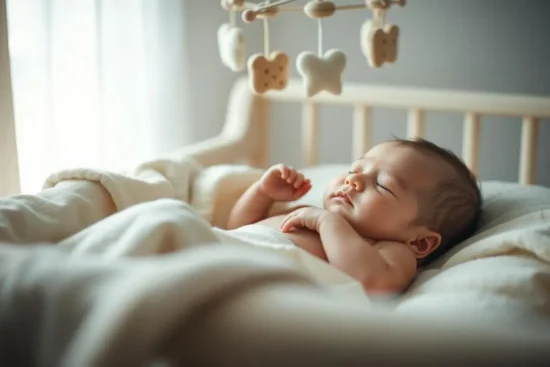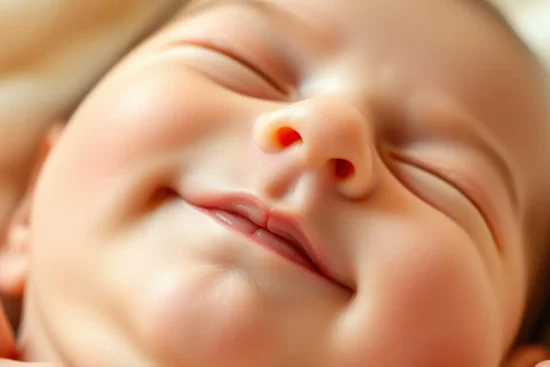
5 Reasons Why Babies Struggle to Sleep During Storms: Understanding Your Little One’s Restlessness
Introduction: The Storm-Sleep Conundrum
When storms roll in, many parents wonder, do babies not like to sleep during storms? The answer is often yes. Babies can struggle to sleep during storms due to sensory overload, instinctual responses, and environmental factors. Thunder and bright lightning can create a stressful atmosphere for infants, who are not used to such disturbances. This can trigger a fight-or-flight response, making it hard for them to relax and fall asleep.
Interestingly, babies are not accustomed to silence; they have spent months in the womb, surrounded by comforting sounds like a heartbeat and blood flow. As noted in the article on Sound Machines and White Noise for Baby Sleep, “For babies, especially newborns, silence can feel uncomfortable or bizarre.” This lack of familiar sounds can make the sudden noise of a storm even more jarring.
To help reduce these disturbances, many parents use sound machines and white noise. These devices provide a consistent background sound that mimics the comforting noises of the womb, helping babies feel more secure during storms. The same source emphasizes that “using white noise can be comforting and can make a huge difference in your baby’s sleep.”
However, it is essential to use sound machines safely. The American Academy of Pediatrics recommends keeping sound machines in hospital nurseries at 50 dB or lower, while the CDC advises keeping the volume under 60 dB for infants. This ensures that the sound is effective without risking hearing damage. When used correctly, sound machines can significantly improve sleep quality for babies, even during storms.
In conclusion, understanding why babies may struggle to sleep during storms can help parents create a better sleep environment. By using sound machines and white noise, parents can help their little ones feel more secure and comfortable, allowing for better sleep despite the chaos outside. For more tips on improving your baby’s sleep, check out our related post on creating a calming bedtime routine.
1. Sensory Overload: When Thunder Becomes Too Much
Babies often have trouble sleeping during storms due to sensory overload and their instinctual responses to loud noises and flashes of lightning. Unlike adults, who may have developed coping strategies for such disturbances, infants are not used to the chaotic sounds of nature. This can create a stressful environment, leading to anxiety and disrupted sleep patterns. The question arises: do babies not like to sleep during storms? The answer is often yes, as the combination of environmental factors can trigger a fight-or-flight response in these little ones.
Read also: 10 Shocking Reasons Why Dogs Might Attack a Sleeping Baby.
The womb is a naturally noisy environment, filled with the sounds of a beating heart, blood flow, and digestive processes. For many babies, silence can feel uncomfortable or even bizarre. As noted in the Sound Machines and White Noise for Baby Sleep article, “For babies, especially newborns, silence can feel uncomfortable or bizarre. They simply aren’t used to it because the womb is far from quiet.” This unfamiliarity with silence can make the sudden loud noises of a storm particularly alarming.
To help reduce these disturbances, many parents turn to sound machines and white noise. These devices can provide a consistent auditory backdrop that mimics the comforting sounds of the womb, helping babies feel more secure. Research indicates that using white noise can significantly improve sleep quality for infants. According to the same source, “Using white noise can be comforting and can make a huge difference in your baby’s sleep.”
However, it is crucial to use sound machines safely. The American Academy of Pediatrics recommends that sound machines in hospital nurseries be kept at 50 dB or lower, while the CDC advises keeping the volume under 60 dB for infants. This ensures that while the sound machines help mask disruptive environmental noises, they do not pose a risk to hearing.
In conclusion, the combination of sensory overload and instinctual responses makes it challenging for babies to sleep during storms. Utilizing sound machines can create a more soothing environment, allowing infants to feel secure and sleep better despite the external chaos. For more insights on improving your baby’s sleep, check out the full article on Sound Machines and White Noise for Baby Sleep.
By understanding the reasons behind this phenomenon and implementing effective strategies, parents can help their babies navigate the challenges of sleeping during storms.
2. Changes in Air Pressure: The Unseen Discomfort
Babies often experience discomfort during storms, primarily due to changes in air pressure and the accompanying sensory overload. This discomfort can lead to sleep disturbances, prompting the question: do babies not like to sleep during storms? The answer lies in their instinctual responses and environmental factors that create a stressful atmosphere for infants.
When a storm approaches, the air pressure drops, which can be unsettling for babies. They are not accustomed to such rapid changes, and this can trigger a fight-or-flight response. The loud noises of thunder and the flashes of lightning can further exacerbate their anxiety, making it difficult for them to relax and fall asleep. As noted in a study on sound machines and white noise for baby sleep, babies are used to the constant sounds of the womb, where they are surrounded by the rhythmic beating of the heart and the whooshing of blood flow. In contrast, the sudden silence that often accompanies a storm can feel uncomfortable or even bizarre for them.
To help reduce these effects, many parents turn to sound machines or white noise. These devices can create a consistent auditory backdrop that mimics the comforting sounds of the womb, helping babies feel more secure during storms. According to the same source, using white noise can significantly improve a baby’s sleep quality by masking disruptive environmental noises. The American Academy of Pediatrics recommends keeping sound machines at a safe volume, ideally under 50 dB, to ensure they are safe for infants.
Moreover, environmental noise is a major cause of disrupted sleep for children, which can negatively impact their daytime alertness and overall health. By using sound machines appropriately, parents can create a more conducive sleep environment for their babies, even during storms. This approach not only helps babies fall asleep but also allows them to stay asleep longer, reducing the likelihood of waking up due to the disturbances caused by thunder or heavy rain.
In conclusion, while babies may not like to sleep during storms due to the discomfort caused by changes in air pressure and environmental noise, utilizing sound machines can provide a solution. By creating a familiar and soothing auditory environment, parents can help their little ones feel more secure and improve their sleep quality during stormy nights. For more insights on how to enhance your baby’s sleep, check out the full article on sound machines and white noise for baby sleep.
3. Disruption of Sleep Environment: When Routine Goes Out the Window
When storms roll in, many parents find themselves asking, do babies not like to sleep during storms? The answer is often yes, as the combination of loud noises and flashes of lightning can create a stressful environment for infants. Babies are not accustomed to such disturbances, leading to sensory overload and instinctual responses that can disrupt their sleep.
Understanding the Impact of Storms on Baby Sleep
For infants, the sounds of thunder and heavy rain can trigger a fight-or-flight response, making it difficult for them to relax and fall asleep. Unlike adults, who may have learned to cope with these noises, babies are still developing their understanding of the world around them. The sudden loud noises can be alarming, causing them to wake up or cry. Additionally, the bright flashes of lightning can startle them, further contributing to their unease.
The Role of Sound Machines
One effective way to help babies sleep better during storms is by using sound machines or white noise. These devices create a consistent auditory backdrop that mimics the comforting sounds of the womb, which can be very soothing for young children. According to a study on sound machines and white noise for baby sleep, “For babies, especially newborns, silence can feel uncomfortable or bizarre. They simply aren’t used to it because the womb is far from quiet.”
Using a sound machine can help mask the disruptive environmental noises caused by storms, allowing babies to feel more secure and sleep better. The American Academy of Pediatrics recommends keeping sound machines at a volume of 50 dB or lower to ensure safety. This level is considered safe for infants and can significantly improve their sleep quality during stormy nights.
Tips for Using Sound Machines Safely
To maximize the benefits of sound machines while ensuring safety, consider the following tips:
- Positioning: Place the sound machine at a safe distance from the crib to prevent any potential hearing damage.
- Volume Control: Keep the volume under 60 dB, as recommended by the CDC, to protect your baby’s hearing.
- Consistency: Use the sound machine regularly to help your baby associate the sound with sleep, making it easier for them to relax during storms.
In conclusion, while storms can disrupt a baby’s sleep, using sound machines can provide a comforting solution. By creating a familiar auditory environment, parents can help their little ones feel secure and sleep better, even when the weather outside is chaotic. For more tips on improving your baby’s sleep, check out our related blog post.
4. Parental Stress and Anxiety: The Emotional Contagion
Babies often experience heightened stress and anxiety during storms, which can significantly disrupt their sleep. This phenomenon can be attributed to a combination of sensory overload, instinctual responses, and environmental factors. The loud noises of thunder and the flashes of lightning create an unsettling atmosphere that can trigger a fight-or-flight response in infants. Unlike adults, who may have learned to cope with such disturbances, babies are not accustomed to these sudden changes in their environment, leading to increased anxiety and difficulty sleeping.
One of the primary reasons babies struggle to sleep during storms is their innate sensitivity to sound. In the womb, they are surrounded by a constant auditory backdrop, including the rhythmic sounds of a heartbeat and the rush of blood. As noted in the article on Sound Machines and White Noise for Baby Sleep, silence can feel uncomfortable or even bizarre for them. Therefore, when faced with the abrupt and loud noises of a storm, it can lead to feelings of unease and distress.
To help reduce these effects, many parents turn to sound machines and white noise. These devices can provide a consistent auditory environment that mimics the comforting sounds of the womb, helping babies feel more secure. Research indicates that using white noise can significantly improve a baby’s sleep quality, especially during disruptive events like storms. The American Academy of Pediatrics recommends keeping sound machines at a safe volume, ideally below 50 dB, to ensure they are beneficial without risking hearing damage.
Moreover, environmental noise is a major cause of disrupted sleep for children, which can negatively impact their daytime alertness and overall health. By masking these disruptive sounds, sound machines can help babies fall asleep and stay asleep more easily. When used correctly, these devices can make a substantial difference in how well babies cope with the stress of storms, allowing them to sleep more soundly despite the chaos outside.
In conclusion, understanding why babies may struggle to sleep during storms is crucial for parents. By utilizing sound machines and creating a calming environment, caregivers can help alleviate some of the stress and anxiety that storms bring. For more tips on improving your baby’s sleep, check out our related post on creating a calming bedtime routine.
5. Evolutionary Instincts: Nature’s Wake-Up Call
Babies often exhibit a noticeable discomfort when it comes to sleeping during storms. This reaction can be attributed to a combination of sensory overload, instinctual responses, and environmental factors. The loud noises of thunder and the flashes of lightning can create a stressful atmosphere for infants, who are not accustomed to such disturbances. Many parents have observed that do babies not like to sleep during storms is a common phenomenon, and understanding the reasons behind this can help in managing their sleep better.
From an evolutionary perspective, the instinctual response to loud noises and sudden changes in the environment can trigger a fight-or-flight reaction in babies. This is a natural survival mechanism that alerts them to potential dangers. Unlike adults, who can rationalize and understand that storms are not threats, infants rely on their instincts, which can lead to increased anxiety and disrupted sleep.
Moreover, babies are used to the constant sounds of the womb, where they are surrounded by the rhythmic beating of the heart and the whooshing of blood flow. As noted in the article on Sound Machines and White Noise for Baby Sleep, silence can feel uncomfortable or even bizarre for them. This lack of familiar sounds can make the sudden loud noises of a storm even more jarring.
To help reduce these effects, many parents turn to sound machines and white noise. These devices can provide a consistent auditory backdrop that mimics the comforting sounds of the womb, helping babies feel more secure and less anxious during storms. Research indicates that when used appropriately, sound machines are safe for infants and can significantly improve their sleep quality. The American Academy of Pediatrics recommends keeping sound machines at a volume of 50 dB or lower to ensure safety.
In conclusion, understanding why do babies not like to sleep during storms can help parents create a more conducive sleep environment. By using sound machines to mask disruptive noises, parents can help their little ones feel more at ease, allowing for better sleep even amidst the chaos of a storm. This approach not only aids in immediate comfort but also contributes to the overall health and well-being of the child.
Conclusion: Weathering the Storm Together
As parents, we often find ourselves wondering why do babies not like to sleep during storms. The answer lies in a combination of sensory overload, instinctual responses, and environmental factors that can create a stressful atmosphere for infants. The loud noises of thunder and the flashes of lightning can trigger a fight-or-flight response, making it difficult for babies to relax and fall asleep. Unlike adults, who can rationalize these disturbances, babies are not accustomed to such chaos, leading to increased anxiety and restlessness.
One significant factor contributing to this phenomenon is that babies are used to the constant sounds of the womb. In utero, they are surrounded by the rhythmic sounds of a heartbeat, blood flow, and digestive processes. This environment is far from silent, and when faced with the sudden quietness that often accompanies a storm, babies may feel uncomfortable or even frightened. As noted in the article on Sound Machines and White Noise for Baby Sleep, “For babies, especially newborns, silence can feel uncomfortable or bizarre. They simply aren’t used to it because the womb is far from quiet.”
To help reduce these disturbances, many parents turn to sound machines and white noise. These devices can provide a consistent auditory backdrop that mimics the comforting sounds of the womb, helping babies feel more secure during storms. Research indicates that using white noise can significantly improve a baby’s sleep quality by masking environmental noises that might otherwise disrupt their rest. The same source highlights that “environmental noise is a major cause of disrupted sleep for children, and this disrupted sleep hurts daytime alertness, performance, quality of life, and overall health.”
When using sound machines, it is crucial to follow safety guidelines. The American Academy of Pediatrics recommends keeping sound machines at a volume of 50 dB or lower, while the CDC suggests maintaining a safe decibel level for infants under 60 dB. This ensures that while the sound machine provides comfort, it does not pose a risk to the baby’s hearing. As stated in the article, “When used appropriately, white noise and sound machines are safe for your little ones to use (and research shows that they are beneficial for sleep).”
In conclusion, understanding why do babies not like to sleep during storms can help parents create a more soothing sleep environment. By utilizing sound machines and white noise, parents can help their babies feel more secure and comfortable, allowing them to sleep better despite the external chaos. For more tips on improving your baby’s sleep, check out our related posts on baby sleep strategies and creating a calming bedtime routine.







